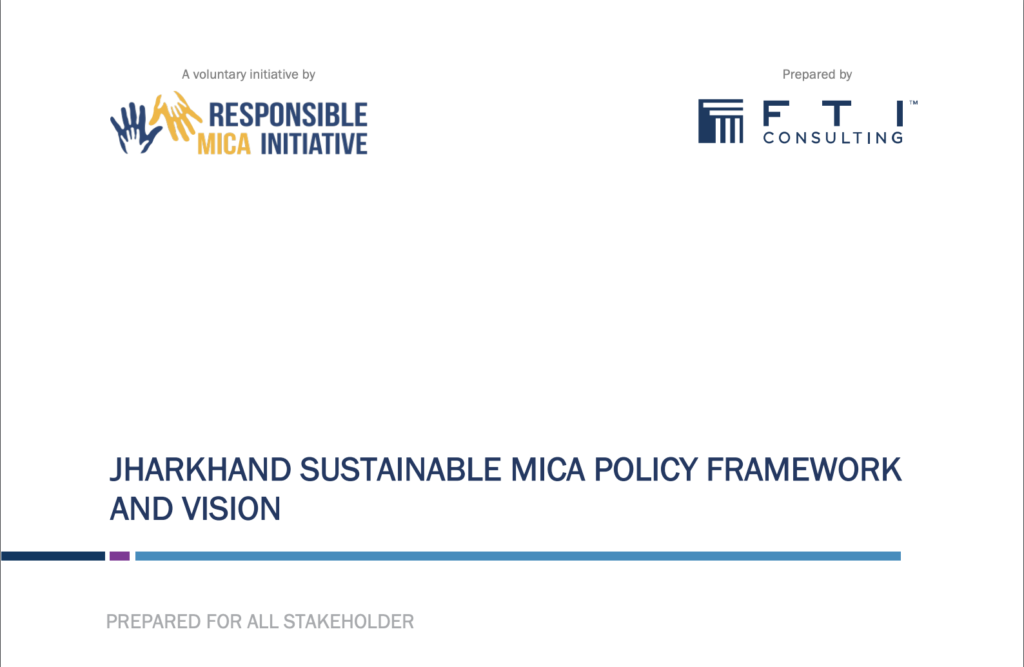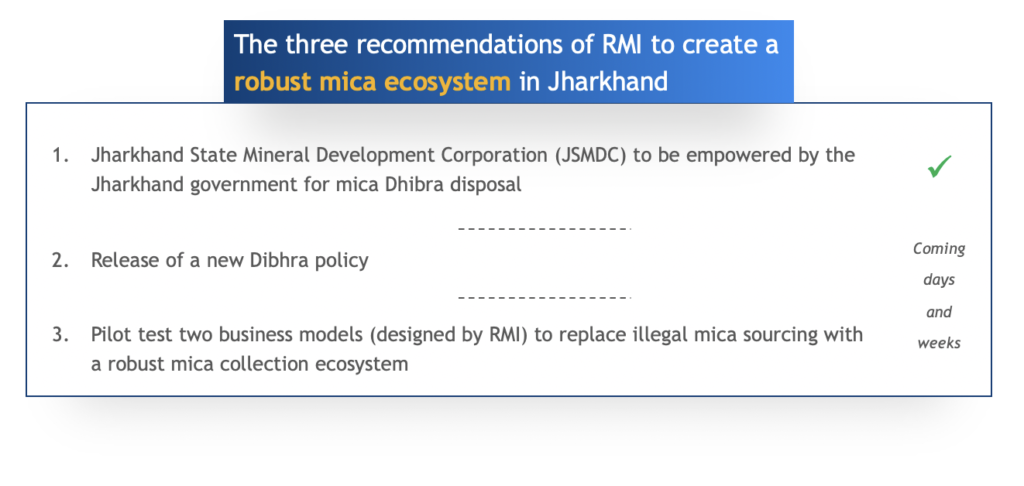
Since 2018, RMI’s has led and facilitated a series of multi-stakeholder consultations. From mica workers to Jharkhand government representatives, passing by PRI members (Panchayat Raj Institutions), national and global mica-using companies, India-based mica exporters and processors and especially the Mica Exporters Association (MEA), as well as India-based and international civil society organizations, stakeholders from various spheres have had the opportunity to share their perspectives. RMI elaborated the outcomes in the “Jharkhand Sustainable Mica Policy Framework and Vision” which was submitted to the Jharkhand government in June 2020.
Decision of the Jharkhand Chief Minister
Building on this submission, RMI engaged key stakeholders in a second round of consultations with the Jharkhand government, the Mica Exporters Association, civil society organizations. This co-development work resulted in three short-term recommendations to create a robust mica ecosystem in the state for the benefit and the overall development of the mica reliant communities, while promoting responsible business practices in the mica sourcing region.
On February 10, 2022, the first of these three recommendations has been adopted during a Jharkhand cabinet meeting, with the JSMDC being empowered as the focal point and decision body for all mica-related topic in the state.

Two of three recommendations still to be realized
The next two recommendations, which shall now be discussed in the coming days and weeks pertain to:
(i) the development and release of a new Jharkhand Mica Dhibra Policy, and
(ii) the pilot-testing of two community-based business models designed to replace illegal mica sourcing with a robust mica collection and commercial ecosystem.
“A clear legal framework would now not only lead to the formal recognition of an economic activity carried out by around 300,000 mica-dependent people and to the protection of their rights with a sense of dignity, but also revive mining in a sustainable manner. Processing and exports of mica from Jharkhand would provide additional revenue to the state, create jobs, stimulate indirect economic activities, while simultaneously eliminating illegal mining. In coordination with Jharkhand government, RMI would be able to pilot test these community-based business models that include responsible sourcing practices. This being the opportunity to renew our support and deep gratitude to Jharkhand government for the fruitful joint work achieved over past years”
Fanny Frémont, Executive Director, Responsible Mica Initiative